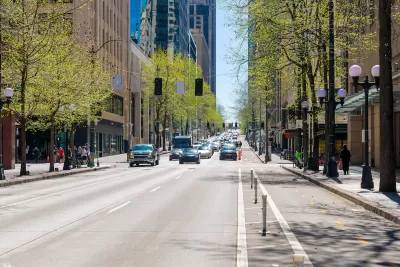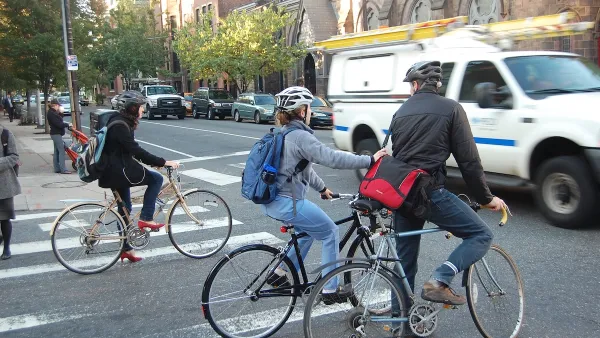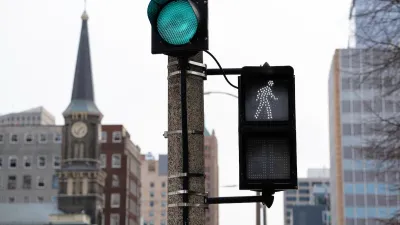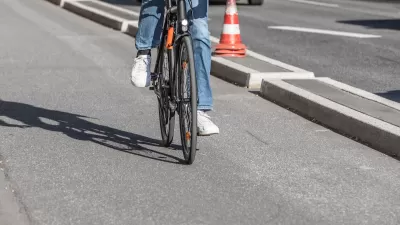An analysis of seven road safety project sites showed no negative economic impact on surrounding businesses.

In an article for UW News, Alden Woods highlights new research from the University of Washington that shows that road safety projects built as part of the city’s Vision Zero pledge had no negative economic impact on adjacent businesses.
An analysis of seven safety projects showed no reduction in business over three years. “In the three years after each safety intervention, researchers found no significant difference in the year-over-year change in revenue of the businesses in the intervention and comparison sites. On average, taxable sales increased in both the intervention and comparison sites over time, and at largely the same rate.”
The results could help convince reluctant business owners, who often oppose road safety projects under the assumption that they could be bad for business. According to study co-author Andrew Dannenberg, “The sales data do not suggest any economic harm occurred, in fact there were a few instances where the safety interventions might have even helped sales.”

Planetizen Federal Action Tracker
A weekly monitor of how Trump’s orders and actions are impacting planners and planning in America.

Restaurant Patios Were a Pandemic Win — Why Were They so Hard to Keep?
Social distancing requirements and changes in travel patterns prompted cities to pilot new uses for street and sidewalk space. Then it got complicated.

Maui's Vacation Rental Debate Turns Ugly
Verbal attacks, misinformation campaigns and fistfights plague a high-stakes debate to convert thousands of vacation rentals into long-term housing.

In California Battle of Housing vs. Environment, Housing Just Won
A new state law significantly limits the power of CEQA, an environmental review law that served as a powerful tool for blocking new development.

Boulder Eliminates Parking Minimums Citywide
Officials estimate the cost of building a single underground parking space at up to $100,000.

Orange County, Florida Adopts Largest US “Sprawl Repair” Code
The ‘Orange Code’ seeks to rectify decades of sprawl-inducing, car-oriented development.
Urban Design for Planners 1: Software Tools
This six-course series explores essential urban design concepts using open source software and equips planners with the tools they need to participate fully in the urban design process.
Planning for Universal Design
Learn the tools for implementing Universal Design in planning regulations.
Heyer Gruel & Associates PA
JM Goldson LLC
Custer County Colorado
City of Camden Redevelopment Agency
City of Astoria
Transportation Research & Education Center (TREC) at Portland State University
Jefferson Parish Government
Camden Redevelopment Agency
City of Claremont





























